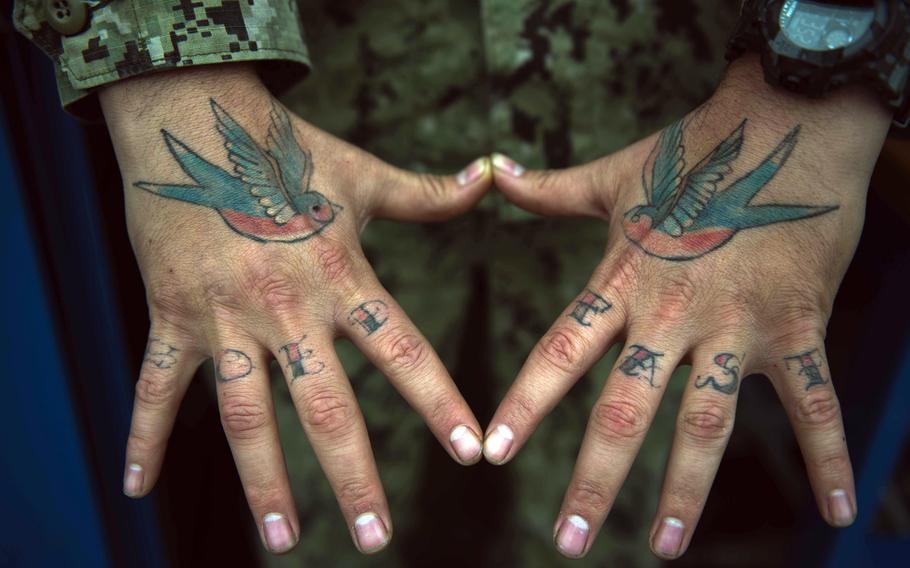
All of the U.S. military’s service branches have, in recent years, made their policies less restrictive regarding the size and location of tattoos. (Class Levingston/U.S. Navy)
TOKYO — Tattoos may be forbidden at many of Japan’s communal hot baths, but the nation’s armed forces may drop its ban on to attract young recruits.
A senior Ministry of Defense official said the country’s declining birth rate is reducing the pool of recruits interested in serving in the Self-Defense Forces, and measures like lowering resistance to tattoos may prove an incentive.
"There is a need to consider the state of human resources base," specifically that Japan recorded only 800,000 births last year, said Kazuhito Machida, director for the ministry's personnel and education bureau. Machida spoke on May 9 before the Diet’s upper house Committee on Foreign Affairs and Defense.
At the hearing, Masahisa Sato, an upper house member from the ruling Liberal Democratic Party and a former Self-Defense Force veteran, questioned whether the government can afford to exclude otherwise qualified recruits because they bear small “fashion tattoos.”
He said the party has received a petition from would-be recruits willing to join but rejected because of their tattoos.
"There are various types of tattoos now, including fashion tattoos, and there are men who have tattoos of small flowers or names," Sato said in a video of the meeting posted to the upper house website.
Body art is gradually becoming popular in Japan, especially for the younger generation, though tattoos are often associated with yakuza, or crime syndicates. That long-held association often means people with tattoos are banned from public baths or pools or from certain jobs.
The Defense Ministry has prioritized recruiting for its armed forces as it faces what it considers a growing threat from China’s military build-up and North Korea’s ballistic missile and nuclear weapons programs.
Meanwhile, recruiting numbers are down along with the falling birthrate and as more high school graduates, the primary recruiting pool, choose higher education over military service, according to a Kyodo News report Monday.
All of the U.S. military’s service branches have, in recent years, made their policies less restrictive regarding the size and location of tattoos.
The Army, for example, loosened its policy in June 2022 to allow ink on hands, behind ears and behind necks, matching rules enacted by the Navy in 2016.
“Specifically, the current tattoo policies have evolved to permit tattoos for recruits and service members almost anywhere on the body, except for on the head and face,” the Government Accountability Office wrote in an August 2022 report.
Stars and Stripes reporter Seth Robson contributed to this report.